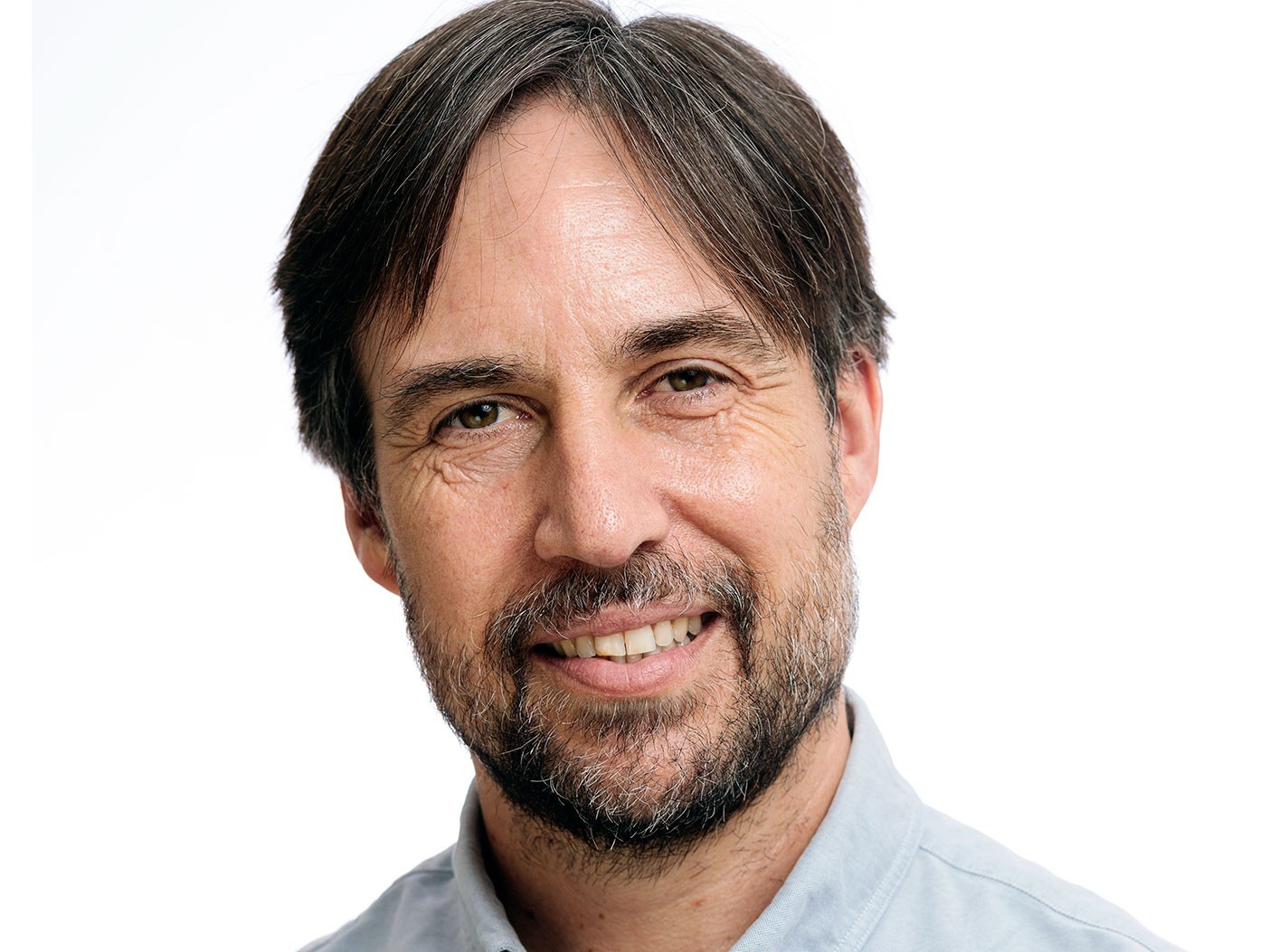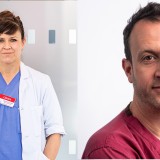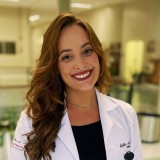Young GI Blog
Role of social media for GI doctors and its importance for young researchers
October 30, 2024 | Enrique de-Madaria

In 2012 I opened a Twitter (now X) account: @DeMadaria. I didn't do it for anything related to gastroenterology, but because it was a social network that was talked about a lot, and it gave you the possibility to talk directly with people you admire, such as actors and actresses, writers, etc. I didn't really know how it worked, and at first, I hardly used it at all. I also had my Facebook account, which I used for personal matters, without much enthusiasm. I am currently the gastroenterologist with the highest number of followers on X in Spain, and the pancreatologist with the most followers worldwide, so what made me decide to boost my social networks so much? In this Young GI Blog post I will tell you about my experience with social media, how it has helped me to develop my work, and some tips on how to grow in social media.
The beginnings: what you don't see, you don't know
In 2013 I founded and was elected the first president of the Spanish Pancreatology Association (AESPANC). As president, one of my roles was to make my society's activities successful. I had a target population of professionals: those interested in pancreatic diseases. If our activities did not reach them, they simply would not sign up for them. I created a Facebook and Twitter account for the association and started to spread the word about our activities. Soon after, I decided to organize a sporting event in my city, Alicante: a race to raise funds for pancreatic cancer research. How to reach out to the Alicante society to get them to participate in the event? With Facebook. I created an account for the race, and started posting daily. I had the feedback of likes and how many times each post was shared, and over the weeks and months I learned how to make posts that would touch people's hearts, how to be original, how to talk about emotions, I learned the language of communication. Eight hundred and fifty people came to the first race, and today, almost 10 years later, more than 60,000 people have run it in various cities in Spain and Italy, and we have raised more than a million euros over the years. But it all started with a small, handcrafted race promoted on Facebook.
With all this, I understood the power of social networks in advertising activities: only what reaches a lot of people is successful. So, I created the social networks of the journal Pancreatology, the European Pancreatic Club (which became soon the pancreatology social network with the largest number of followers) and other accounts of research groups and institutions.
Growing on Twitter
Once I understood that having a strong network of followers was good for disseminating activities related to the scientific societies and sporting events I organized, I decided to grow. And I did it thanks to teaching pancreatology. I started creating teaching threads about pancreatic diseases on Twitter, which you can see with the hashtag #TheAmylaseSchool. In addition, I learned to interact with other powerful gastroenterologists on this social network, and I became friends with a group of gastroenterologists who used Twitter to teach, learn and have fun. And we named ourselves #GIgang. We empowered each other (and still do) and enjoyed this social network. I posted daily and put a lot of energy into it. Sometimes too much, to tell you the truth. And I grew steadily, so that my posts got more and more visibility.
I learned a set of rules that I advise you to follow:
- Be generous with the achievements of others: regardless of the number of followers, fame or where they come from, I have always liked to give visibility to the achievements of my colleagues. Giving visibility to others allows others to grow, and you avoid your account being focused only on yourself, you are more of an ambassador for your area of expertise.
- Never talk about extra-professional topics that are controversial. On social media there is an extreme polarization on political, religious or similar topics. If you want to develop your social media from a professional point of view, avoid them.
- Get permission from patients to share material based on their cases, avoid anything that can help identify them such as name, date you treated them, photos showing their face or even their clothes or tattoos...
- If someone is disrespecting you on social networks, it is better not to reply or to block them than to engage in a useless escalation of war.
- Never put yourself in a sphere of intellectual or moral superiority, respect other opinions and be humble.
Opportunities that Twitter has given me
In parallel to my growth in social media, I grew in my research career, and when I went into collaborative research, I started using social media to recruit collaborators. In the PAN-PROMISE study, in which we developed a symptom scale in acute pancreatitis, I used Twitter and was able to recruit 29 centers from 15 countries; the study was a success and was published in Gut. I then used Social Media to recruit collaborators for the WATERFALL clinical trial: 18 centers from 4 countries; it was published in the New England Journal of Medicine. I also used it in the WATERLAND study (which has just won the UEG Research Prize): 47 centers from 18 countries including the 5 continents. Don't underestimate the capacity of social networks to enhance collaborative research!
During COVID-19 I gave a talk on the relationship between COVID-19 and acute pancreatitis at UEG Week. The Twitter account of the journal Nature Reviews in Gastroenterology & Hepatology tweeted the talk and I replied on that social network that I thanked them for spreading the word about the talk, and that if they wanted me to write a review on this topic in their journal, I would be happy to do so. Months later I had an article written with my friend Gabriele Capurso in the highest impact journal of Gastroenterology. Thanks to Twitter.
Also, at that time I organized an online course in Gastroenterology together with my friend Sunil Amin and my #GIgang comrades. We called it #EndoTrainAEG2022 and it was a resounding success, with over 1,500 registrants. This course caught the attention of Charu Paranjape, a surgeon from Boston who was co-organizing the Harvard Medical School MINT course with Kumar Krishnan, a gastroenterologist. He wrote to me and asked me to be part of the course and help them with outreach. I put a lot of effort into social media and the course was a huge success, with thousands of people signing up. The contacts that I generated during this experience and the diffusion that the course achieved allowed me, two years later, to co-direct together with Yasmín Hernández-Barco the Harvard Medical School course ‘Management of Pancreatic Disorders for the Practicing Clinician’.
Epilogue: thank you social networks!
Thanks to social networks I have learned a lot about my specialty by creating teaching material, I have been able to be useful to scientific societies and institutions by promoting activities, I have organized a sporting event that has already raised a million euros for pancreatic cancer research, I have been able to make contacts that have led to publications in the best digestive health journals and a course at Harvard Medical School, I have recruited collaborating centers for my studies from more than 18 countries with publications in prestigious journals, and I have had a lot of fun. There have also been times when I was too focused on social media and it was stressful and addictive, but I have found a good balance. Nowadays I spend more time on my blog, DeMadaria versus Placebo, where I write posts very similar to this one, telling my experiences in the research world, but I don't give up the good things about social media.
Grow by sharing clinical cases and teaching, give visibility to your colleagues' achievements, interact with people and institutions, learn the language of social media, avoid controversial and confrontational topics, stay in a purely professional sphere, use social media to promote your studies and those of others, grow, enjoy, balance and enhance your career with social media.




Please log in with your myUEG account to post comments.